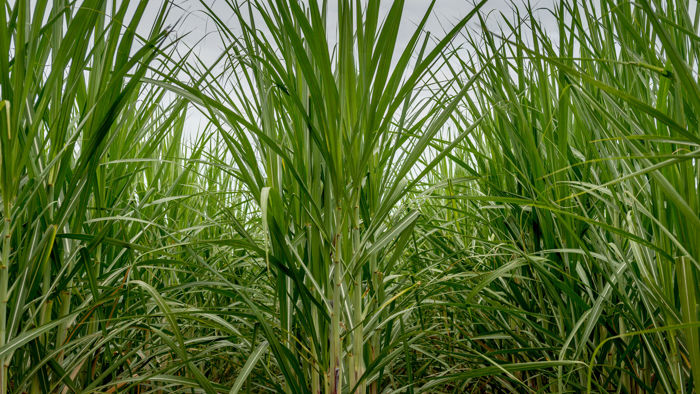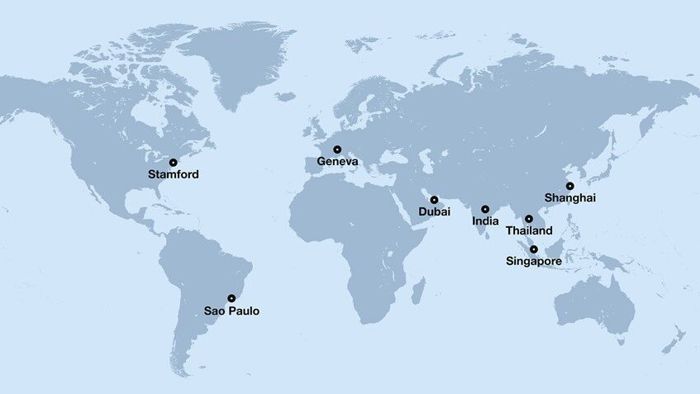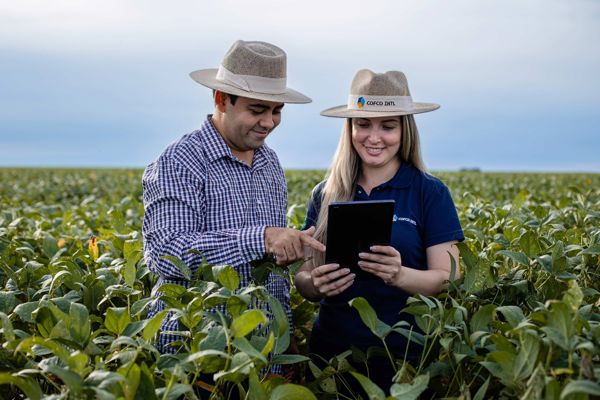
Hélène Rougès, sugar trader at COFCO International talks about the rewards and the challenges of her profession
Sugar is a passion for Hélène Rougès. But while she consumes it only in moderation, her job allows her to explore and appreciate more fully the depth and complexity of this extremely popular commodity.

Hélène Rougès, a sugar trader specializing in European, Ukrainian, and Russian markets seen at COFCO International’s office in Geneva, a major global trading hub. The availability of trained traders, a strong and reliable banking system as well as a time zone that facilitates communication between Asia, Africa and the Americas are the city’s advantages.
“Of course, I like sugar, who doesn’t?” Rougès says. “But I’d only have it very occasionally - it is a work passion for me more than a food craving.”
Rougès, a sugar trader, who specializes in European, Ukrainian, and Russian sugar markets, sells to the Black Sea region, Israel, Lebanon and Africa.
After two years at an investment bank, she joined COFCO International in 2011. Familiar with trading and financial transactions, she moved to agricultural commodities in order to work with something more “tangible” and involving more human interactions.

Sugar which comes from processing sugar beet or cane is one of COFCO International’s most traded commodities. Its key origination markets are the world’s main sugar exporters - Brazil, Central America, India, Thailand, EU and Ukraine. Hélène sells sugar to the Black Sea region, Israel, Lebanon and Africa.
A French citizen, she is based in Geneva, a major global trading hub for sugar, where most commodities houses have their top trading teams.
“What I love about my job is that it’s real - I can see, feel, understand the product I am trading,” she says. “I go on crop tours, I get to see the beets, talk with the producers, factories, buyers and other traders – it is so much more than a transaction.”
Sugar which comes from processing sugar beet or cane is one of COFCO International’s most traded commodities. The company is one of the top 5 sugar traders in the world, moving 6mmt last year, of which a large part came from its own production in Brazil. The company also owns 4 mills in Brazil producing both sugar and ethanol.
Its key origination markets are the world’s main sugar exporters - Brazil, Central America, India, Thailand, EU and Ukraine.

COFCO International is one of the top 5 sugar traders in the world. A 53-people strong sugar trading team is spread between offices in Brazil, Dubai, India, Shanghai, Singapore, Thailand and the U.S.
The group has 6,500 employees working across the world on sugar plantations, refineries and silos.
Hélène is part of a 53-people strong sugar trading team spread between offices in Brazil, Dubai, India, Shanghai, Singapore, Thailand and the U.S.
Is sugar trading a high-pressure job?
“Definitely,” she says. “But it is also massively rewarding.”
Explaining her work while global demand outpaces supply and high price volatilities are fueling the markets, Hélène says it can feel daunting to be constantly reactive and on guard.
“You need to make decisions and judgements that carry big financial weight and it can feel a bit heavy,” she says.
“But you are never completely alone – here at COFCO we are a very tight team working together closely, consulting with each other and taking advice.”
Besides, the team is incentivized to work together, rather than competing.
“If the team does well, everyone is rewarded and if the team doesn’t perform we all take some of the responsibility,” she says.
Trade can be an equaliser
"Times are changing and this is a profession that rewards results.”
The team’s traders and analysts are spread around the world, watching markets, weather patterns, and following movements in production and consumption. Together with information about expected supply and demand, such data are critical to a sugar trader’s decision-making.
The team connects frequently, consulting on day-to-day developments and meeting quarterly to devise longer-term strategies.
“People interactions are at the absolute core of my job.”
Carrying the COFCO International brand opens many doors. “But at the end of the day, you need to live up to that and create a strong relationship with your team and with your business partners.”
Asked how she feels in a profession that is still very male-dominated, Hélène does not hesitate to answer: “I feel great – like I belong here.”
There are still barriers to entering the world of trading but her message to women who are interested is that: “Times are changing and this is a profession that rewards results.”
“At the end of the day, the spreadsheet is the decisive factor,” she says. “It isn’t about politics, gender, who talks more, or who likes who: that is why trading is a great equalizer.”
